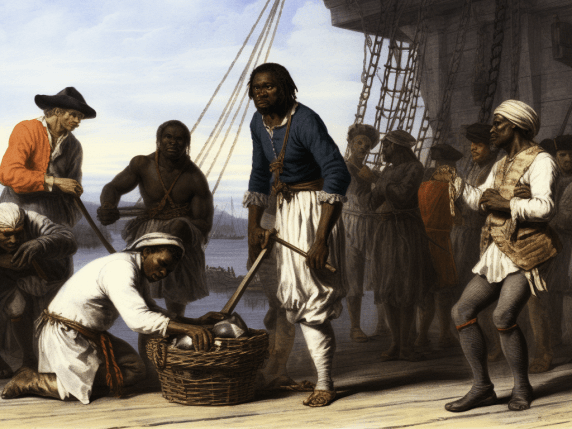
Unveiling the Complex History of Dutch Slavery: A Journey of Apologies and Reflection
Introduction:
The recently published article by the Indian Express sheds light on the history of Dutch slavery and the Netherlands’ apology for its involvement. Building upon its valuable insights, this article aims to comprehensively explore the subject, unraveling the complexities that have shaped this historical chapter. By delving into lesser-known details, analyzing various perspectives, and examining the profound impact of slavery, this article seeks to contribute to the ongoing discussions surrounding this crucial issue.
The Historical Context of Dutch Slavery
Dutch involvement in the slave trade dates back to the late 16th century when they established a foothold in the transatlantic trade routes. Under the Dutch West India Company, vast human suffering was perpetuated as enslaved Africans were transported to Dutch colonies in the Americas as a labor force for plantations.
During the peak of the Atlantic slave trade, the Netherlands emerged as one of the prominent players. Their ships transported enslaved individuals from West Africa to the Americas, allowing Dutch merchants to amass vast wealth and solidifying their trade position. This sustained involvement in the slave trade led to significant economic growth, particularly in cities such as Amsterdam and Rotterdam.
The gradual emergence of the abolitionist movement during the late 18th century sparked a protracted struggle to end slavery. Factors such as the Enlightenment era’s ideas of universal human rights, increasing dissent within Dutch society, and international pressure all contributed to the decline of the Dutch involvement in the slave trade.
Facing the Dark Past: The Netherlands’ Apology
In recent years, there has been increasing demand for acknowledgment and reparations from countries involved in the transatlantic slave trade. In a significant step forward, the Netherlands issued an apology for its role in perpetuating slavery and its profound consequences. This important act was accompanied by a commitment to critically examine the legacies of slavery and engage in dialogue with affected communities.
The Netherlands’ apology opens up a broader conversation about reparations, historical culpability, and the long-lasting impact of slavery. It highlights the importance of including a diverse range of voices and perspectives to ensure a comprehensive understanding of the past and pave the way for a more equitable future.
Understanding the legacy of slavery is essential for combating contemporary racism and achieving true equality. Educational initiatives, public memorials, and comprehensive historical curricula are vital for raising awareness and fostering dialogue. By recognizing the complexity and interconnectedness of historical narratives, we can work towards healing the wounds of the past.
Conclusion
The complex history of Dutch slavery deserves careful examination, acknowledging the immense suffering endured by enslaved Africans and their enduring legacies. Through sincere apologies, ongoing discussions, and comprehensive education, we can seek justice, promote empathy, and build a more inclusive future for all. As we navigate this intricate chapter of history, it is crucial that we continue to amplify diverse voices and promote the unwavering pursuit of truth and reconciliation.
